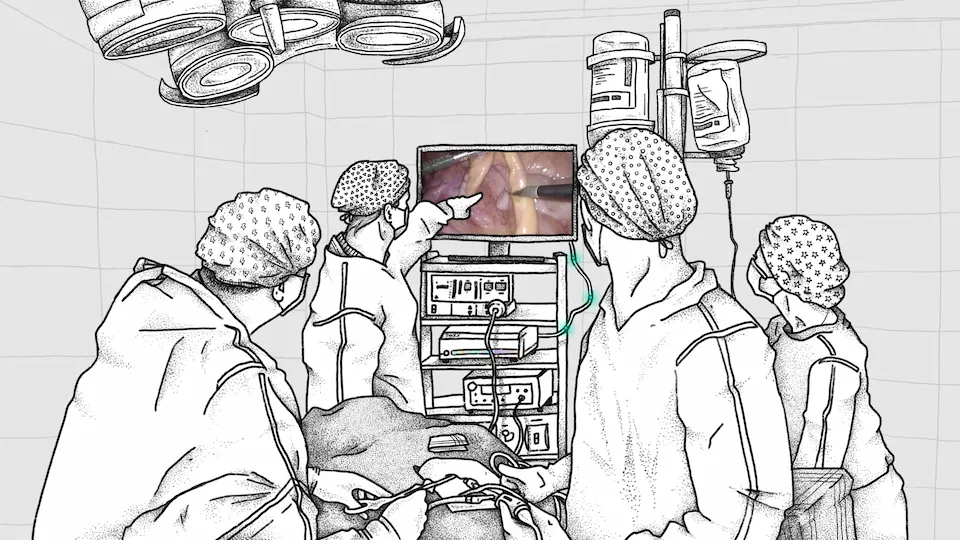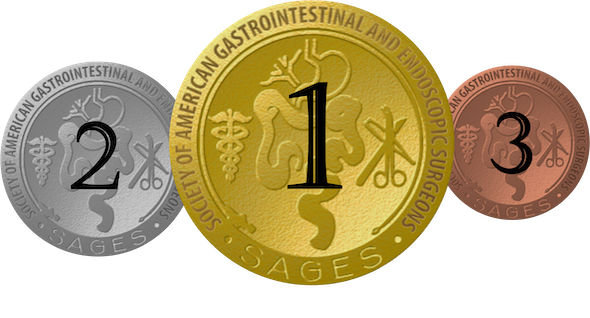AI tools have become a hot topic of conversation in healthcare over the past year, and with good reason. Although patients are unlikely to have a visit with Dr. Chatbot anytime soon, AI technologies are now used on a daily basis by a variety of clinicians, including surgeons. This means it’s likely the role of AI in surgical care will grow, leading many surgeons to ask, “Is AI going to replace me?”
The short answer to this question is, “No, but…” Let’s dive in to discuss who/what is more likely and less likely to be replaced by AI technologies.
What Can AI Do That Surgeons Can’t?
Although the adoption of digital technologies, including AI, in the healthcare industry lags behind most other professional sectors, currently available AI tools are able to perform certain tasks that are not feasible for physicians, usually because of time constraints.
The crux of all AI technologies, which makes them so appealing, is their ability to process voluminous amounts of data in a short time period and generate useful output about this data. This is possible because these tools are trained on large datasets, which allows them to create algorithms.
There is no shortage of available data in healthcare. In fact, the situation is quite the opposite- we have more data than time to process and make use of it. This is what AI can do that doctors can’t. It has the ability to mine large quantities of data and generate patient-specific recommendations for management, such as individualized preoperative risk stratification.
What Can AI Do That Surgeons Don’t Want To?
While the idea of AI taking over tasks that physicians currently perform may sound ominous, there are a number of instances in which this is likely to be a welcome change.
One such example is the use of AI technologies for clinical documentation. Surgeons spend a substantial amount of time on clinical documentation, often outside of normal working hours. Not only do these hours spent on clinical documentation take surgeons away from direct patient care, they also contribute to physician burnout.
Imagine an AI tool that can pair with intraoperative video recording already in use and take what it sees to generate an accurate operative report. Such technology already exists, and its widespread use could greatly reduce the administrative burden for surgeons and, therefore, decrease burnout.
How Can AI Augment Surgical Care?
Rather than viewing AI as a tool that will replace the work of surgeons, it makes more sense to think of it as a means of augmenting the care that surgeons currently provide, like an additional surgical instrument.
AI technologies being developed for use in the OR have the ability to identify critical anatomic landmarks and steps in a surgical procedure. This information can then be used for clinical decision support and improved workflow efficiency.
For example, currently available AI tools are able to identify the Critical View of Safety during laparoscopic cholecystectomy with 84% accuracy. Such technologies have the potential to reduce errors and improve quality by encouraging best surgical practices in every case.
Furthermore, these same tools that pair with intraoperative video already being recorded are able to detect surgical case steps, meaning they have the potential to offer feedback to the user about the best next steps while simultaneously providing real-time information to OR staff about the expected time remaining in a case, allowing for streamlined OR workflow.
So, will AI replace surgeons? It’s unlikely. However, given that AI tools have the ability to improve patient safety, clinical outcomes, quality of care, and clinical documentation, according to AMA President Jesse Ehrenfeld, MD, “Physicians who use AI will replace those who don’t.”
“Physicians who use AI will replace those who don’t.”
This sentiment is echoed by Keith Horvath, MD, AAMC’s senior director of clinical transformation, who notes that “AI is not going to replace physicians, but physicians who use AI are going to replace physicians who don’t, and that may be the cautionary tale.”
AI’s inability to quickly evolve or work in a non-linear fashion means that these tools are unable to match the critical thinking skills of surgeons, who perform their roles in this manner on a daily basis. In addition, AI will never be able to offer the key ingredient of medical care: empathy. There will always be a need for human-to-human interaction that cannot be replaced by AI.
However, if surgeons experience better outcomes, improved efficiency, and decreased burnout by augmenting their work with AI tools, it makes sense that experts expect those who utilize them will be replaced by those who do not. The key for surgeons in this new era of medical care is to learn and adapt to change, as the benefits AI promises for patients and surgeons alike mean that it is here to stay.











